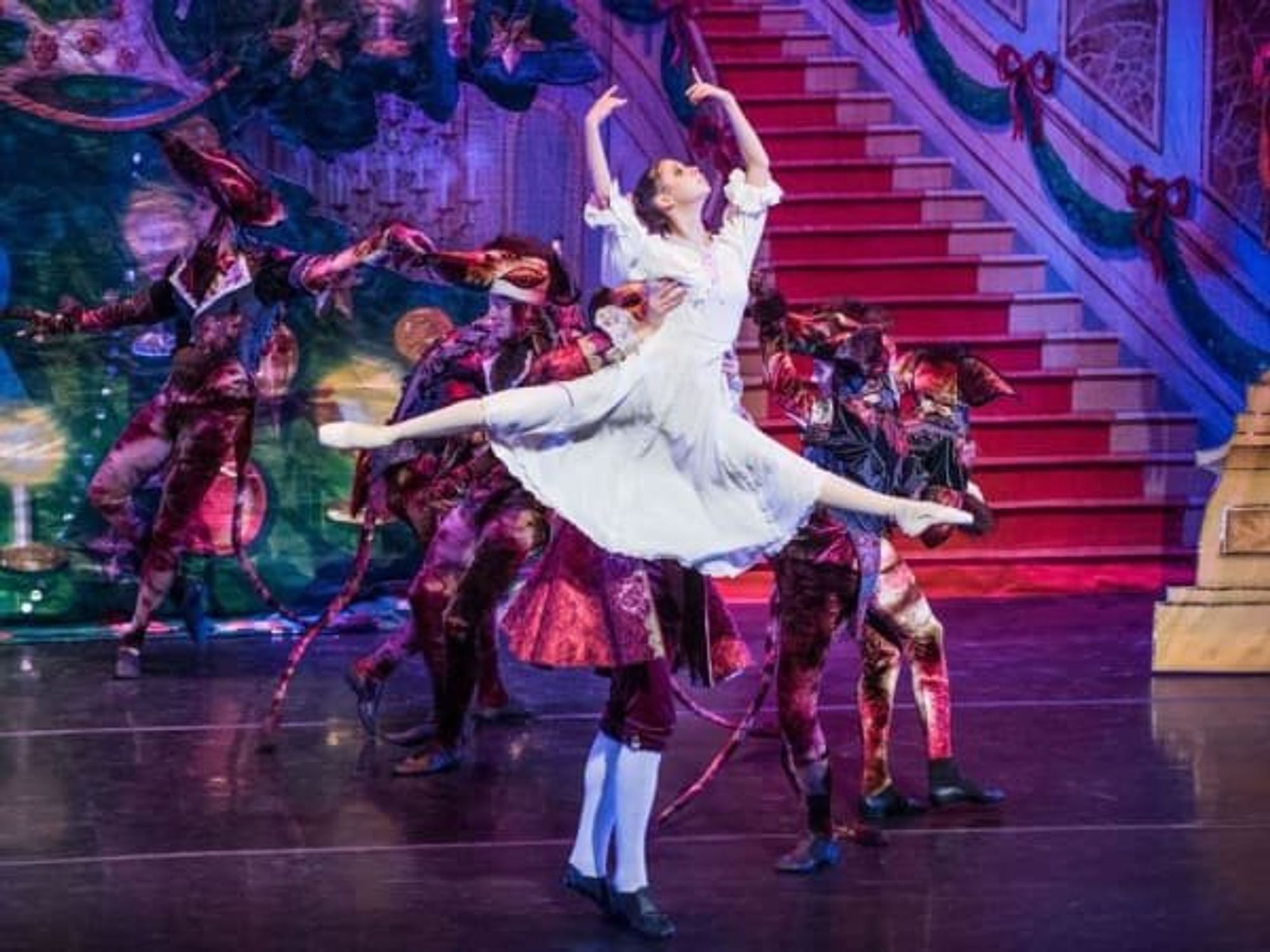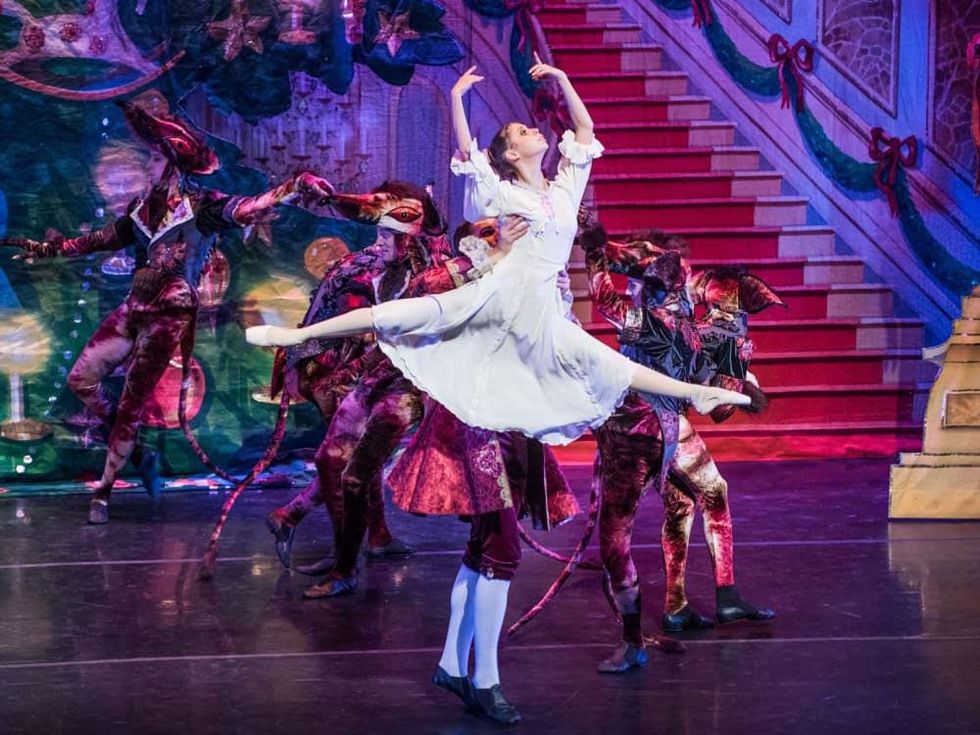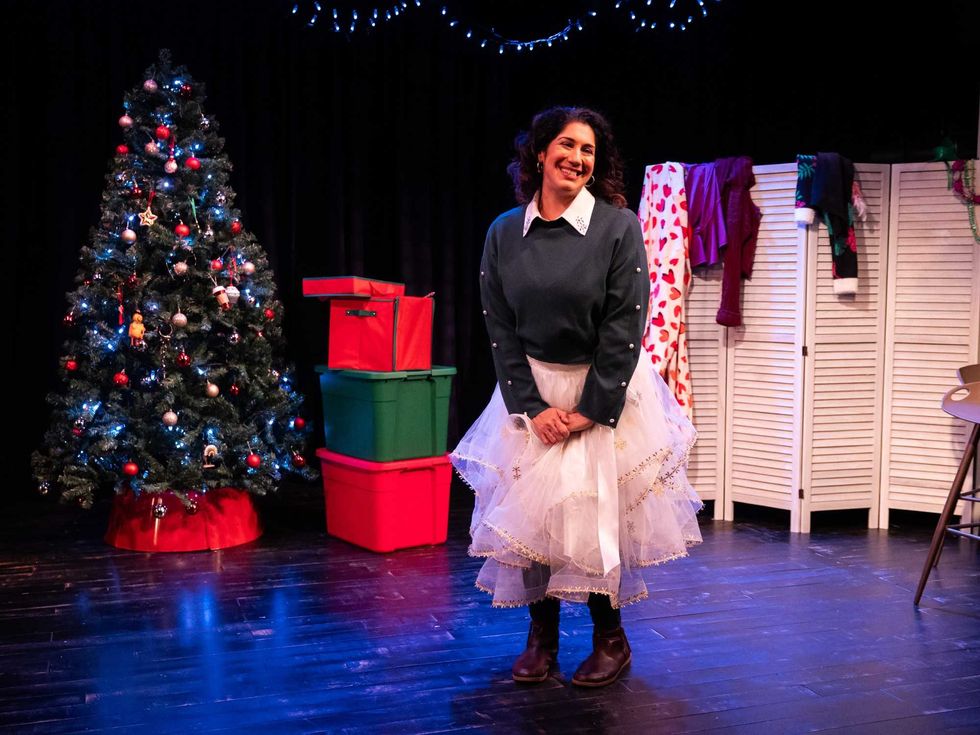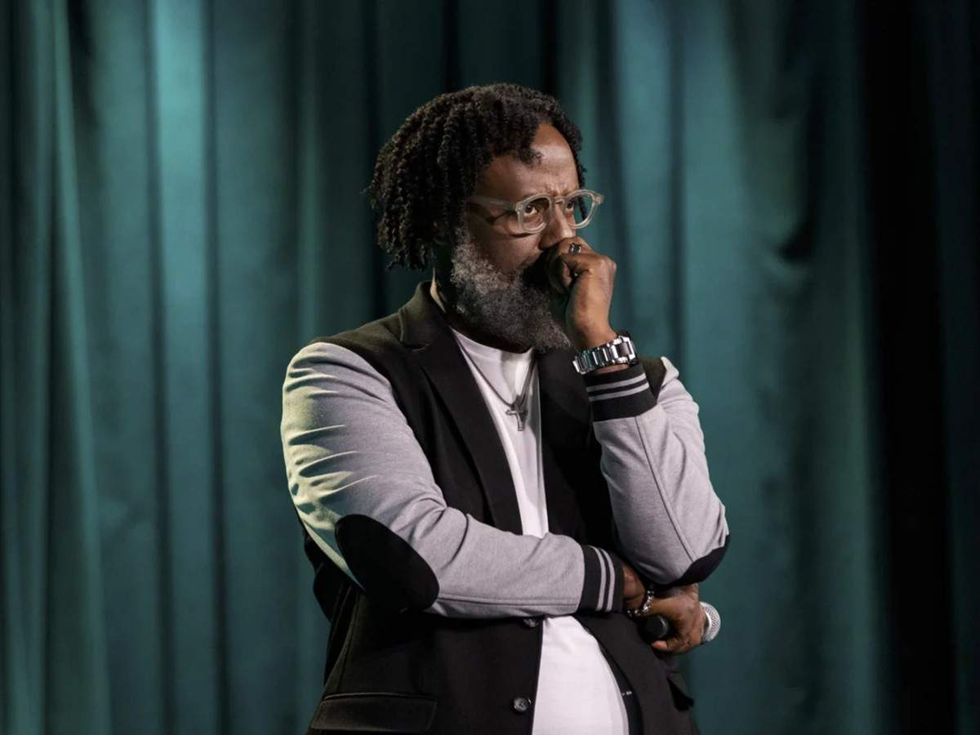The only thing missing is the elephant
Looking back on the ultimate weekend for classical music lovers: Three reviews,two neglected pets & a spent critic
 Opera Vista's Bollywood-style world premiere production wowed.
Opera Vista's Bollywood-style world premiere production wowed. Shannon Langman as Queen Chandra Devi and Timothy Jones as King of Kashi in theOpera Vista stunner.
Shannon Langman as Queen Chandra Devi and Timothy Jones as King of Kashi in theOpera Vista stunner. Mendelssohn Symphony No. 3 "Scottish" closed a strong program for the River OaksChamber Orchestra.Photo by Joel Luks
Mendelssohn Symphony No. 3 "Scottish" closed a strong program for the River OaksChamber Orchestra.Photo by Joel Luks Bass Soloist Sandor Ostlund, Conductor JoAnn Falletta, composer ScottMcAllister, concertmaster Brian Lewis take their bows for the River Oaks ChamberOrchestra.Photo by Joel Luks
Bass Soloist Sandor Ostlund, Conductor JoAnn Falletta, composer ScottMcAllister, concertmaster Brian Lewis take their bows for the River Oaks ChamberOrchestra.Photo by Joel Luks Dance of Asian America premiere a ballet performed to Lou Harrison's VariedTrio.Photo by Joel Luks
Dance of Asian America premiere a ballet performed to Lou Harrison's VariedTrio.Photo by Joel Luks Leone Buyse, flute (left) and Zheng Cao embrace after an emotional performanceof Stewart Wallace's "She Told Me This."Photo by Joel Luks
Leone Buyse, flute (left) and Zheng Cao embrace after an emotional performanceof Stewart Wallace's "She Told Me This."Photo by Joel Luks
It’s 10:47 p.m. Saturday night and I am sipping on a somewhat aged shiraz — and by aged I mean opened a few days ago and neglected since then — in the only clean non-wine glass I managed to locate between a pile of dishes and overripe bananas.
The dog is craving attention while aggressively requesting his treats: A behavior which combines rapidly fanning of his upper paws while barking rhythmically, and somewhat accurately. The cat decides to engage in a game of bite that toe, ending temporarily when he too receives a tasty reward. I haven't been around here much.
But tonight, none of the usual irritating life idiosyncrasies have any effect on my mood. Although I feel spent, tired, emotionally drained and psychologically thrown, I feel at peace in having experienced a weekend that can only be described as an aesthetic orgasm.
For classical music lovers, this weekend could have been considered Christmas in July — in October.
While the Houston Symphony was away, three of the most progressive art non-profits performed ambitious seemingly sold-out programs that included substantial world premieres. And as Alecia Lawyer, executive director of the River Oaks Chamber Orchestra (ROCO) describes, “being witness to a premiere allows you to be a part of the creative process.”
I could not agree more.
Opera Vista’s premieres The Silent Prince
An overprotective mother who thinks her son is God? A virile father who rejects his son’s gentle and stereotypical female traits? A deity sent to earth to know great pain and carry the burden of others?
Thai composer Somtow Sucharitkul’s Bollywood-style chamber opera The Silent Prince, although based on an Indian morality tale, crosses many cultural bridges with a comprehensive story line with numerous allegories, tangents and thought-provoking interpretations, all relevant and current.
If you are not familiar with the tales of Temiya, a Buddha reincarnated as a prince who decides to become silent, Sucharitkul’s themes are universal and are similar to Judeo-Christian values.
Written in a very comfortable tonal language, Sucharitkul disperses a misconception that contemporary opera is esoteric and impertinent. A world premiere perfect for the Houston stage, the rich and exotic sonorities created by juxtaposing delicious instruments like the traditional Indian tambura with celeste, the church-like harmonium and harp with colorful coloratura flourishes, the effect was mesmerizing capturing an honest, respectful and modern representation of Indian culture.
For Opera Vista’s biggest spectacle to date, Viswa Subbaraman, artistic director conducted a challenging but satisfying score and assembled a powerful cast. As Chandera Devi, mezzo-soprano Shannon Langman’s enchanting and assertive delivery of rather difficult virtuosic embellishments balanced baritone Timothy Jones’s strong, stubborn and regal character as the King of Kashi.
Sucharitkul’s decision to call for a male soprano as Tamiya intensified the divine and celestial quality of the moment when The Silent Prince is no longer silent. Ryan West was able to capture the moment beautifully with a round tone that floated on top of already shimmering orchestral textures.
Although Opera Vista’s plans to include a live elephant did not come to fruition, its omission did not compromise the experience. With a philosophy of less is more, the clarity of the narrative did not need such extraneous flashy additions. But I am certain the Houston Zoo will appreciate the company’s vow to make an donation in honor of Tupelo, the zoo’s most recent arrival as an apology to the audience.
Performing elephants are illegal in Thailand and with plans to tour this production in the works, Opera Vista may just have to get used to the idea.
River Oaks Chamber Orchestra debuts Scott McAllister’s Double Bass Concerto
All River Oaks Chamber Orchestra performances go beyond just exceptional music making. Their claim that participating, and they mean participating, in the concert experience is “the most fun you can have with serious music” is quite accurate.
Although in traditional concert programming there is usually a hierarchy of compositions, this season's opener presented an actively visual program with vitality and vigorous energy in every piece. The reverberant live acoustics of The Church of St. John the Devine did contribute immensely.
Guest conductor JoAnn Falletta’s honest, comfortable and genuine musicianship and conducting style is a perfect match for ROCO more informal and impromptu modus operandi. Comfortable addressing audiences, Falletta transforms the concert stage into an intimate and personal setting.
This is a place where you can rock to classical music.
György Ligeti’s Concert Românesc exposed ROCO’s best qualities: The musicians ability to transform their approach to match what is artistically required. A delicious blend of the string section led by concertmaster Brian Lewis in one movement contrasts a peasant jovial gypsy band in the next. The mark of a virtuoso? Sailing through demanding technical passages with ridiculous ease.
Sandor Ostlund, principal bass, decided he did not like the standard repertoire enough to program it. So after being introduced by a mutual student of Scott McAllister, professor of composition at Baylor University, active collaboration, improvisation and experimentation culminated in a three-movement Concerto for Double Bass and Chamber Orchestra.
Ostlund’s performance was flawless. Beginning with a ferocious cadenza, the piece moves into lyrical passages using the whole range of the instrument including ethereal harmonics in unison with solo violin. As one audience member asked via text message, "what happens to a new work once it’s performed?" In this case, you can catch another performance tonight at 7 p.m.
As with all ROCO performances, Lawyer surprised everyone with an unscripted, melancholic and sensual performance of Piazzolla’s Oblivion. A spirited performance of Mendelssohn’s Symphony No. 3 in A minor, “Scottish” left absolutely nothing contained.
Musiqa’s first commission: She Told Me This
As artistic director Anthony Brandt describes it, “experiencing novelty keeps you young and contemporary music is one of the safest, most fun and inexpensive way to do so.”
Perhaps it’s time to trade in those botox injections and give yourself a brain workout. And with two concert premieres, a dance premiere and the world premiere of Musiqa’s first commissioned work, this was an indulging end to a classical music weekend trip.
There is almost too much to think and consider about each piece to ruin them by attempting to restrict their meaning to words. From Lei Liang’s spiritual treatment of Mongolian pastoral-like chants in Gobi Gloria to Brandt’s rather hilarious miniature caricatures in his Nano Symphony (intermission, clapping and encore included in an attempt to capture the traditional concert program), elegant and exquisite use of costumes and flowing fabrics by the dancers from Dance of Asian America layered an abstract narrative element above Lou Harrison’s Varied Trio.
Singer Zheng Cao’s performance of She Told Me This, a monodrama for mezzo-soprano and chamber ensemble by Stewart Wallace, extended beyond the musical experience to the history that surrounds the creation of the work.
As Wallace explained, She Told Me This, is a work transformed from his own opera The Bonesetter’s Daughter, libretto by Amy Tan and premiered in 2008 by the San Francisco Opera with Cao playing the main role.
She Told Me This takes the form of storytelling across three generations of women struggling with the bone-deep identity from their homeland of China to present day America.
But it is Cao’s up and down struggle with stage four lung cancer diagnosed 18 months ago that deepens the meaning of the activity on stage. Cao is vibrant, highly emotive and insightful, bringing some of the musicians and myself to tears more than a few times during the performance.
Extended silence at the conclusion of a piece signals an unwillingness to allow the moment to finish and let our state of mind to dissipate into the normalcy of everyday banalities.
“You are an inspiration,” I told Cao.
“I can’t stop performing,” she responded.





